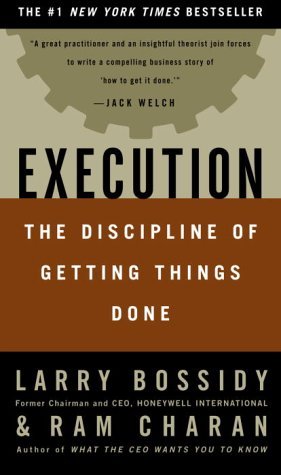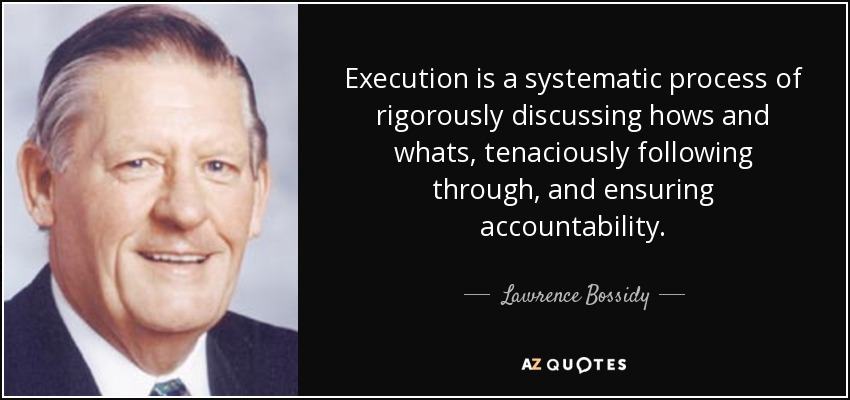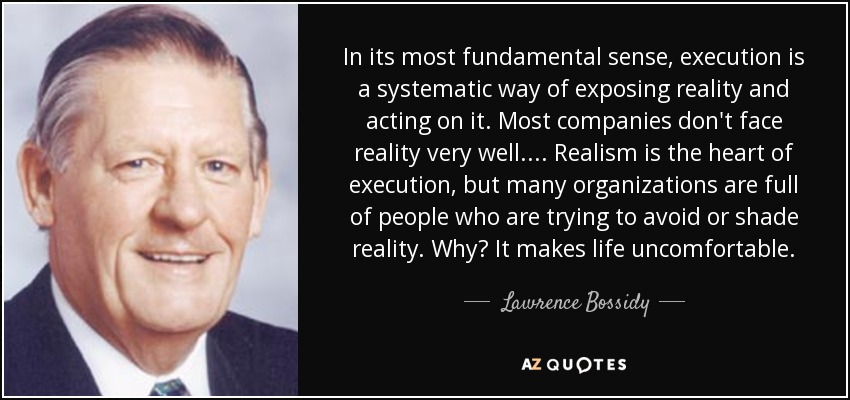Click here to return to Blog Post Intro

The best organization strategies will fail if they’re not executed well. Leaders need to focus on the three or four priorities that will produce the best results and strive for simplicity.
Execution – The Fundamentals
To succeed, it is imperative that the leader personally engages and demonstrates her or his commitment, encouraging employees to focus on processes that make a difference. Consider these three core fundamentals to effective execution:
- Integral to strategy, execution is a discipline that prosecutes the three core processes of people, strategy, and operations with rigor, intensity, and depth.
- It is the major responsibility of the business leader, who gets things done by taking charge of running the three core processes (people, strategy, and operations).
- Execution must be a core element of the organization’s culture, embedded in the reward systems and in the norms of behavior.
These fundamentals are built on a foundation of leadership behaviors, an effective framework for cultural change, and having the right people in the right place.
We must recognize that leaders have acquired a lot of knowledge, experience, and wisdom which they must pass on to the next generation of leaders. They must directly influence the behaviors of team members in order to deliver results. And their most important job is selecting and evaluating people! Here are the seven behaviors of good executors, as described by Bossidy and Charan:
- “Know your people and your business.”
- “Insist on realism.”
- “Set clear goals and priorities.”
- “Follow through.”
- “Reward the doers.”
- “Expand people’s capabilities.”
- “Know yourself.”
Unfortunately, many leaders pay too little attention to the judgment, experiences, and capabilities of people on their team, who can make the difference between success and failure. Instead, they pay more attention to budgeting, strategic planning, and financial monitoring. Further, many companies have these three major flaws in their budgeting and operations process:
- The process does not provide for robust dialogue on the plan’s assumptions. An open debate on assumptions is a critical component. Debating the assumptions and making trade-offs build the business leadership capacities of all involved.
- The budget is built on desired results, but does not specify the actions that ensure those results. Never finish a meeting without clarifying the follow-through plan – who, what, when, how, and the next review. Milestones bring reality to a strategic plan!
- The process does not provide coaching opportunities for people to learn the whole business, nor does it develop the social structure for working together for a common cause.
Rather than simply focusing on the bottom line, leaders must commit as much as 40 percent of their time and emotional energy to selecting, appraising and developing talent.
Execution – The How
If leaders model the right behavior, create a culture that rewards execution, and have a consistent system for getting the right people in the right jobs, the foundation is in place for operating and managing the people, strategy, and operations processes effectively. Bossidy and Charan stipulate that the people process is the most important because it’s the people who ultimately create strategy and translate strategy into operations.
Leaders need a robust people process that:
- accurately/exhaustively evaluates individuals
- provides a framework for identifying and developing all levels and kinds of leadership
- is the basis of a strong succession plan
Most companies evaluate the jobs people do today instead of focusing on whether individuals can handle the responsibilities of tomorrow.
As a leader, recognize that having a good strategy is not enough. To succeed, you need to work on your Execution!


